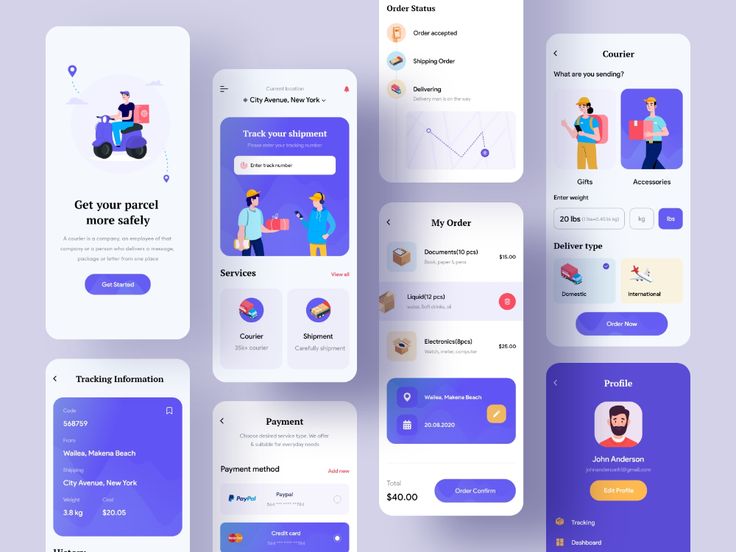React Native for Mobile App Development: A Game-Changer for Cross-Platform Apps

Strong 8k brings an ultra-HD IPTV experience to your living room and your pocket.
In today’s fast-paced digital world, businesses need mobile apps that are efficient, scalable, and cost-effective. React Native for Mobile App Development has emerged as a leading framework, allowing developers to build high-performing apps for both iOS and Android using a single codebase. With its ability to streamline the development process, React Native is an ideal choice for startups and enterprises looking to create dynamic mobile applications.
✍️ Maintaining apps after launch is just as important as building them. Learn how app maintenance practices ensure security, updates, and long-term success.
Why Choose React Native for Mobile App Development?
React Native, developed by Facebook, has gained immense popularity for its efficiency and flexibility. Below are some key reasons why businesses prefer React Native over other frameworks.
1. Cross-Platform Compatibility
One of the biggest advantages of React Native is its cross-platform development capabilities. Instead of maintaining separate codebases for iOS and Android, developers can use a single JavaScript codebase, reducing development time and costs.
2. Faster Development and Time-to-Market
React Native’s reusable components and pre-built libraries help developers accelerate the app-building process. Features like hot reloading allow developers to instantly view changes without recompiling the entire code, making development faster and more efficient.
3. Native-Like Performance
Unlike traditional hybrid frameworks, React Native provides near-native performance by utilizing native components. It bridges JavaScript code with native APIs, resulting in smooth animations and a highly responsive user experience.
4. Cost-Effectiveness
Since React Native enables developers to build apps for multiple platforms with a single codebase, businesses can save significantly on development costs. This makes it a preferred choice for startups and companies with limited budgets.
5. Large Community and Strong Ecosystem
React Native has a vast developer community, meaning continuous support, regular updates, and a wealth of open-source libraries. Businesses leveraging React Native can benefit from community-driven solutions and faster issue resolutions.
Top Companies Using React Native for their Mobile Applications
Several global brands trust React Native for Mobile App Development. Some notable examples include:
- Facebook – The social media giant initially developed React Native for its own app and later open-sourced it.
- Instagram – React Native powers parts of Instagram, making the app more efficient.
- Tesla – The Tesla mobile app uses React Native for a seamless user experience.
- Airbnb – Although Airbnb experimented with React Native, it played a significant role in shaping the framework.
- Uber Eats – The restaurant dashboard in Uber Eats is built using React Native.
How React Native Compares to Other Frameworks
| Feature | React Native | Flutter | Swift/Kotlin |
| Code Reusability | High | Moderate | Low |
| Performance | Near-Native | Excellent | Native |
| Development Cost | Low | Moderate | High |
| Learning Curve | Easy | Moderate | Hard |
| Community Support | Strong | Growing | Established |
React Native stands out as an optimal choice for businesses that want a balance of cost, performance, and efficiency.
Challenges of React Native and How to Overcome Them
While React Native is a powerful framework, it has some challenges:
1. Performance Limitations for Complex Applications
Highly complex applications with heavy animations may experience performance bottlenecks. Solution: Developers can integrate native modules written in Swift or Java/Kotlin to enhance performance.
2. Third-Party Plugin Compatibility
Some third-party plugins may not be well-maintained. Solution: Developers should rely on trusted plugins or create custom native modules when necessary.
3. Debugging Complexity
Debugging React Native apps can sometimes be challenging due to the abstraction layer between JavaScript and native components. Solution: Tools like React DevTools and Flipper help streamline the debugging process.
Future of React Native for Mobile App Development
React Native is continuously evolving, with Facebook and the open-source community contributing to its enhancements. The upcoming architecture, Fabric, is expected to further improve performance and rendering capabilities, making React Native an even stronger choice for mobile app development.
Conclusion
With its cross-platform efficiency, cost-effectiveness, and native-like performance, React Native for Mobile App Development is a preferred choice for businesses aiming to launch high-quality mobile applications quickly. While it has some challenges, ongoing improvements and a robust community make React Native a leading framework in mobile development. Whether you are a startup or an enterprise, React Native offers a scalable and reliable solution for your mobile app needs.
Note: IndiBlogHub features both user-submitted and editorial content. We do not verify third-party contributions. Read our Disclaimer and Privacy Policyfor details.







